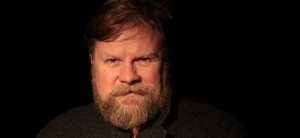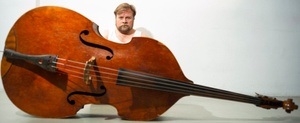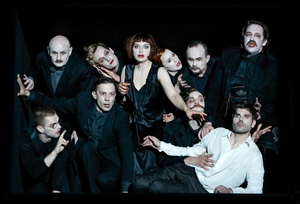AGAMEMNON
In the organizer's words:
AGAMEMNON
by Aeschylus
German by Walter Jens
Aeschylus' King Agamemnon returns home triumphant after a ten-year battle against Troy, unaware that only the hatred and desire for revenge of his wife Clytemnestra await him. She cannot forgive him for sacrificing their daughter Iphigenia in order to ask the gods for favorable winds for his war fleet on the way to Troy. Clytemnestra has had to wait ten years
to avenge the murder of her daughter. She believes she has not only her right as a mother but also the gods on her side. In her fury, however, she does not want to recognize that she too is only part of the curse that demands another for every bloody deed and that has always weighed on the Atrides. Or to put it another way: by taking revenge on Agamemnon
Clytemnestra also seals the fate of her two other children, Electra and Orest.
2500 years ago, Aeschylus wrote "Agamemnon", the prelude to his tragedy trilogy of the "Oresteia". In it, he depicts the deadly cycle of violence and counter-violence as the cause of war, suffering and destruction and shows how this can be broken. The "Oresteia" is therefore rightly regarded to this day as a great plea for democracy and peace.
"Agamemnon" is part of the Residenztheater's exploration of the myth of the "Oresteia", which also includes Jean-Paul Sartre's radical exaggeration of the material in "The Flies" at the beginning of the season and Robert Borgmann's music-theatrical installation "Athena".
The director and stage designer Ulrich Rasche, celebrated for his visually stunning and musical productions, has created Aeschylus' "Agamemnon" in July 2022 as part of a co-production between the Residenztheater and the Athens Epidaurus Festival for the ancient amphitheater in Epidaurus, which seats almost ten thousand spectators. In his production, Rasche reveals the cruel, constantly self-propelling spiral of violence that underlies both the Atrides Curse and the Trojan War, and impressively shows the grinder of this fatal machinery.
Artistic direction
Production and stage direction Ulrich Rasche
Composition and musical direction Nico van Wersch
Costumes Romy Springsguth
Choir direction Jürgen Lehmann
Lighting Gerrit Jurda
Dramaturgy Michael Billenkamp
This content has been machine translated.
Price information:
from 10€ for students













